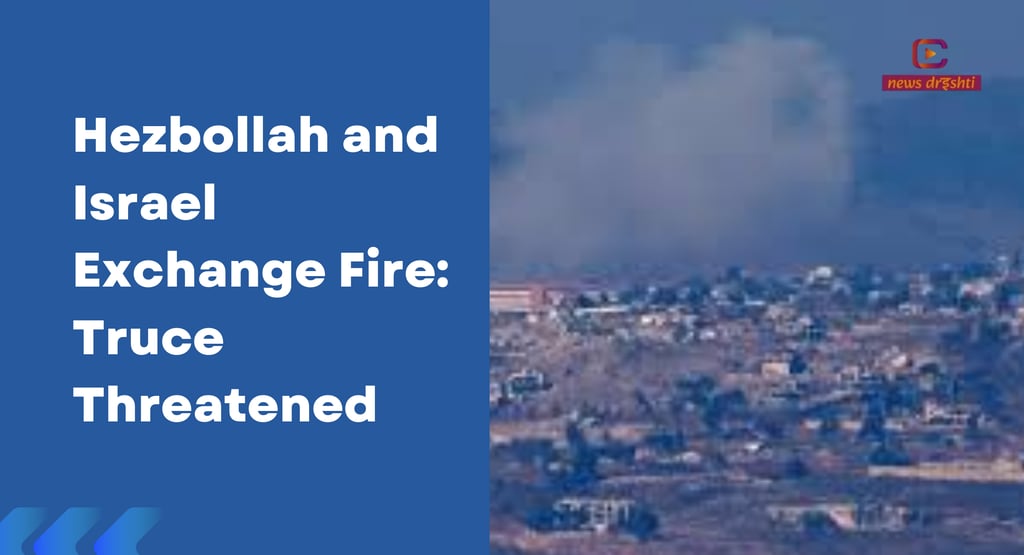Hezbollah and Israel Exchange Fire: Truce Threatened
The fragile ceasefire between Hezbollah and Israel faces a serious challenge as Hezbollah fires projectiles into Israeli territory, prompting a military response. This escalation raises concerns ab...
INTERNATIONAL


The fragile ceasefire between Hezbollah and Israel suffered a significant blow on Monday as the militant group fired projectiles into Israeli-controlled territory, prompting a strong military response. The exchange underscores the volatility in the region and raises concerns about the future of the peace agreement mediated by the United States and France.
According to the Israeli Defense Forces (IDF), Hezbollah launched two projectiles that landed in uninhabited areas of Shebaa Farms, also known as Mount Dov in Israel, causing no casualties or damage. Shebaa Farms, a disputed territory captured by Israel in 1967, remains a focal point of contention between the two sides.
Hezbollah described the attack as a "defensive response" to what it alleged were repeated violations of the ceasefire by Israel. The group stated that its actions were intended as a "warning" against further provocations.
Israel’s retaliation was swift and extensive. The IDF conducted airstrikes across southern Lebanon, targeting multiple sites allegedly linked to Hezbollah’s missile operations. Lebanese authorities reported at least 10 fatalities and three injuries in the strikes, with the exact distinction between civilian and military casualties unclear.
This marks the most significant breach of the truce, which had largely held since its inception. The ceasefire had ended a year of intense hostilities that resulted in thousands of deaths, widespread displacement, and severe infrastructural damage in Lebanon and Israel.
Israeli Prime Minister Benjamin Netanyahu condemned Hezbollah’s actions as a “severe violation” of the agreement. “While we remain committed to the terms of the ceasefire, we will not tolerate acts of aggression that jeopardize our security and sovereignty,” he said.
The ceasefire requires Israel to cease offensive operations in Lebanon and withdraw its troops from southern Lebanon within 60 days. In turn, Hezbollah must retreat northward, enabling the Lebanese military to take control of border regions.
Military analysts warn that the truce’s success hinges on strict adherence by both sides. Israeli military chief of staff Herzi Halevi emphasized the importance of deterrence, stating, “We will respond decisively to any breach of the ceasefire. Our plans are in place to ensure our security remains uncompromised.”
As both sides trade blame for the latest escalation, the international community continues to urge restraint. With memories of last year’s devastating conflict still fresh, the prospect of renewed hostilities looms large, threatening an already precarious peace in the region.
